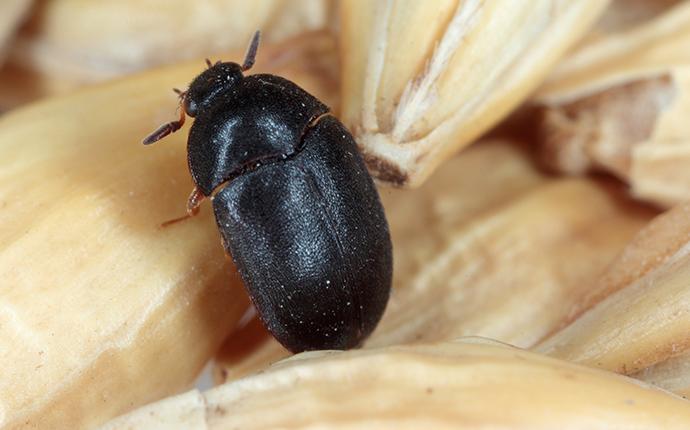They re covered with bristles and shed their skin as they grow.
Carpet beetle larvae shed skin.
As they graze along the surface of susceptible materials they often leave threadbare spots and irregular holes.
Carpet beetles are more of a threat to your.
Several antiseptic creams are sold to reduce the swelling on your skin.
The best way to tell carpet beetle damage from clothes moth damage is to look for shed skins left behind by carpet beetle larvae.
Signs of a carpet beetle infestation.
An infestation can be identified through discovery of damage to fabrics shed skin as well as visible larval movement.
If you face any allergic reaction from the larva of a carpet beetle apply a cold compress to the region.
The larva can also feed on hair lint dead insects and food crumbs.
The adults fly and some are attracted to lights and windows making.
They feed outdoors on pollen or not at all.
Dead skin from the beetles along with shed hairs from the furry larvae known as woolly bears leads to.
Carpet beetles are common pests of fabrics.
In spring female carpet beetles lay 25 to 100 eggs which hatch into larvae within two weeks.
Feeding larvae leave irregular holes and their shed skins in and on infested items.
Adult carpet beetles do not damage fabrics.
This will reduce the inflammation and instantly give relief.
The developing larvae also leave behind shed molted skins.
The varied carpet beetle.
Although carpet beetle larvae do not make webs as clothes moths do their shed skins and fecal pellets which are about the size of a grain of salt make it obvious where they have been feeding.
It is the larva or immature stage of these insects that cause damage to fabrics fur feathers or virtually anything made of animal fibers.
Feeding damage caused by carpet beetles.
Their old skins split down the back much like a cicada nymph s shell and the larvae work their way out.
The hairs can irritate skin upon contact and airways if inhaled.
Larvae young carpet beetles are 1 8 to 1 4 inch long and tan or brownish.
Most carpet beetle larvae are one fourth of an inch long or less somewhat wormlike and often hairy.
Carpet beetle larvae are able to mature under a variety of humidity levels and temperatures although they tend to avoid bright areas.
Depending on food sources and climate larvae may take over a year to develop into adults.
Dry cleaning is suggested as carpet beetle larvae thrive on stained clothing.
The black carpet beetle.
A typical larva top and shed skin bottom.
Black carpet beetle adult and larvae.
Because carpet beetle larvae feed on lint dust and animal hairs strict housekeeping procedures may help to keep an infestation at bay.

